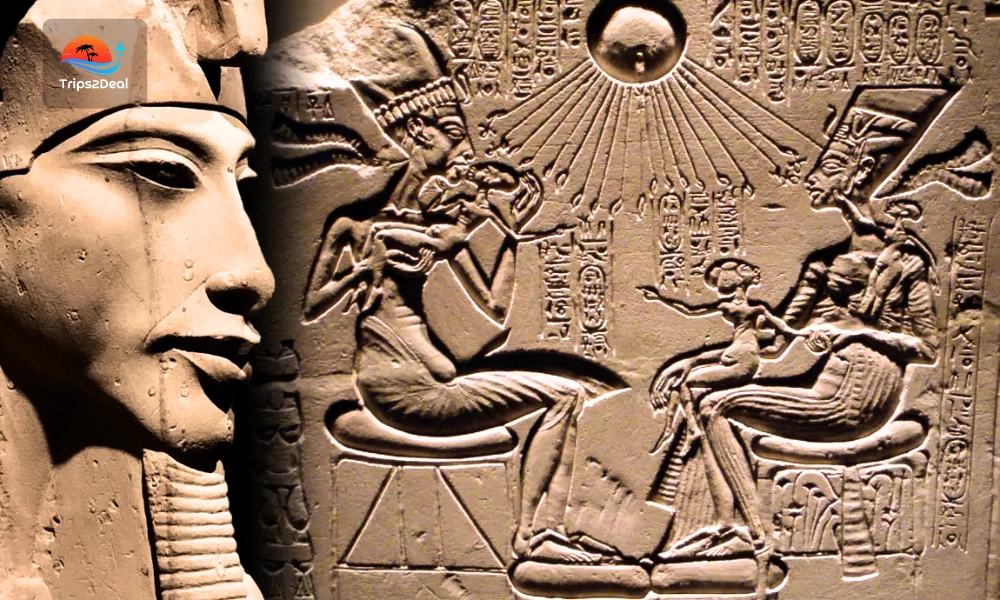Blogs

Akhenaten
Akhenaten is one of the most enigmatic and controversial figures among the pharaohs of ancient Egypt and a cornerstone of the dynasties of the New Kingdom. Through radical religious reforms and as the founder of Atheism, Akhenaten’s reign introduced a marked shift from Egypt’s traditional polytheistic beliefs, leaving a legacy that continues to fascinate historians and archaeologists alike.
Table of Contents
The Rise of Akhenaten
Akhenaten (his original name was Amenhotep IV) became king circa 1353 BC. Son of Amenhotep III and Queen Tiy, he grew up in Egypt’s royal elite. Akhenaten continued his father’s policies when he came to power but soon pursued a radical course that irrevocably changed the direction of Egyptian history. Perhaps most famously and infamously, he initiated Atenism: the monotheistic worship of the sun disk, Aten, which he asserted was the one true god.
Religious Reforms and Atenism
Perhaps Akhenaten’s greatest achievement was his religious revolution. On a larger scale, he tried to take Egypt from a polytheistic society, worshiping gods including Amun, Osiris and Ra, to the worship of Aten only. This transformation was radical, encompassing not merely the excision of Egypt’s ancient pantheon of gods, but also the shuttering of temples where other gods had been worshiped. Akhenaten’s one-god ideas were extreme, and his attempts to implement them created a serious split among scores of worshipers, including the Amun priesthood, who were heavily entrenched at the time.
To popularise his new religion, Akhenaten relocated the capital from Thebes to a newly formed city, called Akhetaten (present-day Amarna) which was named after his deity Aten. Akhenaten's vision of a new way of praying to and governing gods became real in the unique layout and architecture of the city.

Akhenaten's Legacy and the Amarna Period
Plagued by challenges, however, Akhenaten was far less successful than his original religious ideas would have hoped. Atenism was gradually abandoned by his successors and traditional polytheistic practices were restored, especially under his son Tutankhamun. The city of Akhetaten was abandoned, and much of Akhenaten’s legacy was stricken from the records by later pharaohs. Honored as one of the most rarely distinguished and unique time periods in Egyptian history otherwise throughout ringed as the Amarna period, a word that is now describable with its very unique art style known for its genuine and naturalist art fashion as well as the oddly shaped sculptures of himself and his Queen Nefertiti.
Conclusion:
Akhenaten remains one of ancient Egypt’s most fascinating and controversial leaders. His generation of Atenism, along with his sweeping reforms in art, culture, and matters of faith, makes him one of those figures in history that we feast upon. His establishment of Atenism, and his behaviors remain of a man whose rules permeated divisions between behaviour, ethics, life and faith. Although his religious reforms would be short-lived, Akhenaten’s reign represents a unique era in Egyptian history that still fascinates scholars and visitors alike. This story, for all those invested in Egypt’s spiritual evolution and all those interested in the complexities of its pharaohs, remains an essential and indelible chapter.





